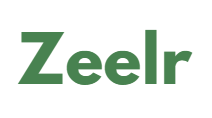
Remote jobs in 2024 are no longer just a trend. Rather, they have become a significant component of the modern work environment with benefits including flexibility and an improved work-life balance. There is also the ability to work from virtually anywhere making it an appealing option for many professionals.
However, securing a remote job requires strategic planning and effort. It starts from even identifying your skill set, knowing what you can do, and working on it effectively. This means you can’t just decide to leave or stop your regular 9-5 without a backup plan or stable work from home.
This article will improve on the best ways you can secure a remote job in 2024 while putting every factor into consideration. Notably, you can use this as a guide to bagging your first contract, and thank us later.
Let’s dive in.
7 Ways to Start Your Journey
Assess Your Skills and Strengths
The first step in getting a remote job is to know what you’re good at. To do this, think about your skills and strengths.
You can consider both hard skills (like coding or graphic design) and soft skills (like communication, problem-solving, and time management). Ultimately, the key here is to understand what you excel at and it’ll help you find the right job.
Match Skills to Remote Job Opportunities
Once you know your skills, the next step is to find remote jobs that fit them. Look into different industries and job roles that match what you’re good at. For example, if you’re great at writing, you could consider remote work in content writing, copywriting, or technical writing.
If you’re skilled in project management, look for remote roles where you can manage projects from afar. Different skills, different fields, and approaches, but what doesn’t change is the fact you have to put these skills to work.
Consider Upskilling or Reskilling if Necessary
The job market is always changing, and the skills in demand can shift quickly. If your current skills don’t match the remote job opportunities available, think about learning new skills or improving your existing ones.
Online courses and certifications can help you gain the skills employers are looking for and make you more attractive to remote job employers.
Build a Strong Online Presence
Although there are different platforms where people can go find jobs online, LinkedIn is more or less the oldest in the books. LinkedIn is a powerful tool for job seekers, especially for those seeking remote work.
Feel free to follow these steps and ensure your profile stands out:
Complete Your Profile: Fill out all sections of your profile, including your work experience, skills, and education.
Use a Professional Photo: Choose a clear, professional photo that reflects your industry.
Craft a Compelling Headline: Write a headline that summarizes your expertise and career goals.
Write a Detailed Summary: Highlight your skills, experience, and career aspirations in your summary.
Connect and Engage: Connect with industry professionals and engage with relevant content to increase your visibility.
Also, social media can be another effective way to build a strong online presence. Interestingly, there are so many platforms one can join and become part of in a short time.
On these platforms, you can share industry news with your fellow niche members, join discussions, and showcase your expertise. Here are some of them:
– Twitter (for general networking and news)
– GitHub (for developers)
– Beehance (for designers)
– Medium (for writers)
Build a Professional Portfolio Website
Creating a professional portfolio website is great for showcasing your work to potential clients. It shows you are serious for business and is the easiest way to make a strong impression. For a complete website that will attract customers,
1. Showcase Your Work: Include samples of your work, client testimonials, and projects you’ve completed.
2. Highlight Your Skills and Experience: Provide a clear overview of your skills and experience relevant to the job you’re seeking.
3. Design and Navigation: Ensure your website is well-designed and easy to navigate.
Your portfolio website acts as a central hub for your professional online presence, making it easier for employers to see your capabilities and achievements.
The Role of a Well-tailored Resume and Cover Letter
Resumes are a one-glance insight into the life of a remote worker. Hence, the best of information is to be contained in any resume submitted online or offline. For a better product on your resumes and cover letter, ensure to tick these boxes:
Highlight Remote Work Experience
When applying for remote jobs, it’s crucial to showcase any previous experience working remotely. This shows potential employers that you understand remote work dynamics and can be productive outside a traditional office environment. Make sure to include specific details about your remote work experience in both your resume and cover letter.
Emphasize Skills Relevant to Remote Work
Highlighting specific skills that employers look for in remote workers makes you a strong candidate for any job as it shows you understand what’s obtainable. Some of the skills naturally affiliated with remote jobs include:
Communication
Effective communication is essential in remote work settings. So, do well to mention your ability to communicate clearly and collaborate with team members, clients, or stakeholders remotely.
Time Management
Remote work requires strong time management skills. Showcase your ability to prioritize tasks, meet deadlines, and manage your workload effectively without direct supervision.
Self-Discipline
Demonstrate your self-discipline by discussing how you maintain focus, stay motivated, and adhere to work schedules while working remotely.
Ability to Work Independently
Remote roles often require individuals who can work autonomously. Provide examples of projects or tasks you completed independently.
A Practical Example:
In your resume and cover letter, include specific examples of how you have used these skills in previous roles. For instance, you might mention how you effectively communicated project updates via email and Slack, managed multiple deadlines using Trello, or maintained a productive work environment at home.
Starting the Search; How to Find Remote Jobs
Use Keywords from Job Descriptions
When applying for remote jobs, many companies use applicant tracking systems (ATS) to screen resumes. To increase your chances of getting noticed, include keywords from the job descriptions in your resume and cover letter. This helps your application pass through the initial screening process more effectively.
Use Dedicated Remote Job Boards
To find remote job opportunities, use specialized job boards like Remote.co, We Work Remotely, and FlexJobs. These platforms list remote positions across different industries.
It’s also beneficial to check these job boards regularly and set up job alerts to receive notifications about new job postings. These tools can help you discover a variety of remote work options tailored to your skills and preferences.
Leverage General Job Search Sites with Remote Filters
You can also find remote job opportunities on general job search sites like LinkedIn, Indeed, and Glassdoor. Use the remote work filters to narrow your search and find relevant positions. As most people have tried it and it has worked, setting up job alerts on these platforms can help too. That way, you are in the loop quicker to stay updated on new remote job listings.
Network within Industry-Specific Communities and Forums
Networking is a powerful tool for job seekers. So, it’s best to join industry-specific communities and forums, both online and offline. This way, you get to connect with professionals in your field, participate in discussions, and attend virtual events.
Also, it gives you a chance to let your network know you are looking for remote work opportunities. Often, job openings are shared within these communities before they are publicly advertised.
Steps on How to Prepare for Remote Interviews
So after finding the job, and sending an application, there’s a 50/50 chance you’ll be called for an interview. If you are not, you get to try again, and when you hopefully see that mail inviting you for an interview, what next?
Do you fret, and give up, or prepare to kill? Well, most people will take the latter. You should too.
Here’s a start to getting ready:
Practice Common Remote Interview Questions
Remote interviews frequently include questions tailored to remote work. It’s beneficial to practice answering common questions like:
– “How do you stay organized when working remotely?”
– “Can you describe a time when you had to resolve a conflict remotely?”
Ultimately. practicing these questions can boost your confidence and help you articulate your experiences effectively during the interview.
Test and Set Up Your Tech Equipment
Technical issues can disrupt a remote interview and leave a negative impression. To avoid this, follow these steps to ensure your tech equipment is ready:
1. Test Your Equipment: Before the interview, test your camera, microphone, and internet connection. Ensure they are working properly to avoid any interruptions during the interview.
2. Choose a Suitable Location: Pick a quiet, well-lit location for the interview. Make sure there’s minimal background noise and distractions.
3. Have a Backup Plan: Prepare a backup plan in case of technical difficulties. Keep a phone number handy for contacting the interviewer or have an alternative device ready.
3. Creating a Distraction-Free Interview Space
During your interview, it’s important to have a quiet and professional environment. You can set up one in easy steps:
1. Find a Quiet Space: Choose a calm area with minimal noise.
2. Neutral Background: Make sure your background is simple and clutter-free.
3. Tidy Surroundings: Keep your space clean and organized.
4. Minimize Interruptions: Let others know about your interview to avoid disruptions.
Getting the Job; What to Do
Aside from preparing for the interview, the most important phase is impressing your employers, and getting the job. Most interviewers and hiring managers are usually not interested in long talk, but seeing what you can do, buys them completely.
So, the goal is to impress them naturally. Here are basic ways to show, rather than tell.
Showcase Experience with Remote Tools
To succeed in remote jobs, you need to be familiar with tools like Slack, Zoom, Trello, and Asana. So, you can show your experience with these tools by mentioning specific projects or tasks where you used them to collaborate and get your work done efficiently.
This shows employers that you’re capable of working effectively in a remote setting and sells your personal experience.
Provide Examples of Successful Remote Projects
Employers want to see evidence that you can work effectively remotely. To do this, share examples of successful remote projects you’ve completed.
Describe the challenges you faced, how you handled them, and the outcomes you achieved. This shows your ability to manage and deliver work in a remote setting aside from what’s on your resume.
Highlight Self-Discipline and Independent Work Achievements
Working remotely demands self-discipline and the ability to work independently. Hence, the earlier you can put this in the mind of your employer, the better. So, take the bull by the horns, and showcase times when you’ve shown these skills.
For example, talk about how you managed your time to meet deadlines or how you solved a problem on your initiative without direct supervision. Certainly, they will be impressed, especially if your experiences are related to theirs, and you can finally tick one step off.
The Act of Negotiating Remote Work Terms
Before negotiating during or after an interview, it’s important to research market rates for remote positions in your field. This helps you set realistic salary expectations and negotiate effectively. Websites like Glassdoor and Payscale offer valuable insights into salary trends for remote roles.
Then, when negotiating your remote job offer, it’s essential to consider the unique aspects of remote work. Besides salary, discuss benefits like flexible working hours, home office stipends, and opportunities for professional development.
These benefits can greatly improve your remote work experience and overall job satisfaction. Clearly communicate your preferences regarding working hours and availability to ensure a smooth working relationship. Remember, don’t promise what you can’t deliver on to get the job, and then fail afterward.
Issues like delivery and availability can be a serious problem for remote workers, and it’s important to talk openly about them. Then, make sure you and your potential boss are on the same page about it. Say what times you like to work, mention any time zone differences, and talk about when you can join meetings. This helps avoid confusion and makes working together easier.
Job Secured, What Next?
The question of what next is one that needs to be talked about. So whether you secured a remote job or not, you need to know these. As a remote worker, the process of growth never ends and you are always going to be in business.
This means you have to continually keep yourself ready. First. it’s really essential to stay informed about industry trends and updates to help your career grow.
You can do so by following up on industry news on websites, blogs, and newsletters. This knowledge keeps you relevant and helps you adapt to changes in your field, making you a more attractive candidate for remote positions.
Also, continuous learning is essential in today’s job market, which is constantly evolving. This is possible by enrolling in online courses and professional development programs, through which you can enhance your skills and remain competitive.
Platforms like Coursera, Udemy, and LinkedIn Learning offer a wide range of courses to help you stay updated and acquire new skills.
These courses can be taken at your own pace, making it convenient to fit learning into your schedule. Whether you want to learn new technical skills, improve your project management abilities, or develop leadership qualities, these platforms provide opportunities to expand your knowledge and advance your career.
Lastly, joining professional networks and attending virtual conferences offer valuable networking opportunities and help you stay updated on industry developments.
You can participate in webinars, online workshops, and virtual meetups to connect with industry leaders and peers. These events provide insights into the latest trends and best practices in your field. So, whatever means necessary, don’t stop growing and climbing the ladder.
Conclusion
To snag a remote job in 2024, this article has provided steps that can help. For starters, you can assess your skills, beef up your online presence, and tailor your application materials before hunting for jobs strategically.
Also, a good prep for interviews puts you ahead while you show off your remote skills, negotiate well, and stay updated with industry trends. Ultimately, with all these boxes checked, you’ll boost your chances of scoring a remote gig and relish the perks of working from wherever.
Stay proactive, keep learning, and watch your remote career take off!
FAQs:
What skills are most important for securing a remote job?
Key skills include strong communication, time management, self-discipline, and proficiency with remote tools like Zoom and Slack.
How can I build a strong online presence for remote job applications?
First, optimize your LinkedIn profile, create a professional portfolio website, and be active on relevant social media platforms.
Where should I look for remote job opportunities?
You can start by using dedicated remote job boards like Remote.co and We Work Remotely. Then, you can also filter for remote positions on general job sites like LinkedIn and Indeed.
What should I highlight in my resume and cover letter for remote jobs?
Emphasize any remote work experience, relevant skills like communication and time management, and use keywords from job descriptions.
How can I prepare for a remote job interview?
The steps are broad but start by practicing common remote interview questions. Ensure to test your tech equipment, and set up a professional, distraction-free environment for the interview.






